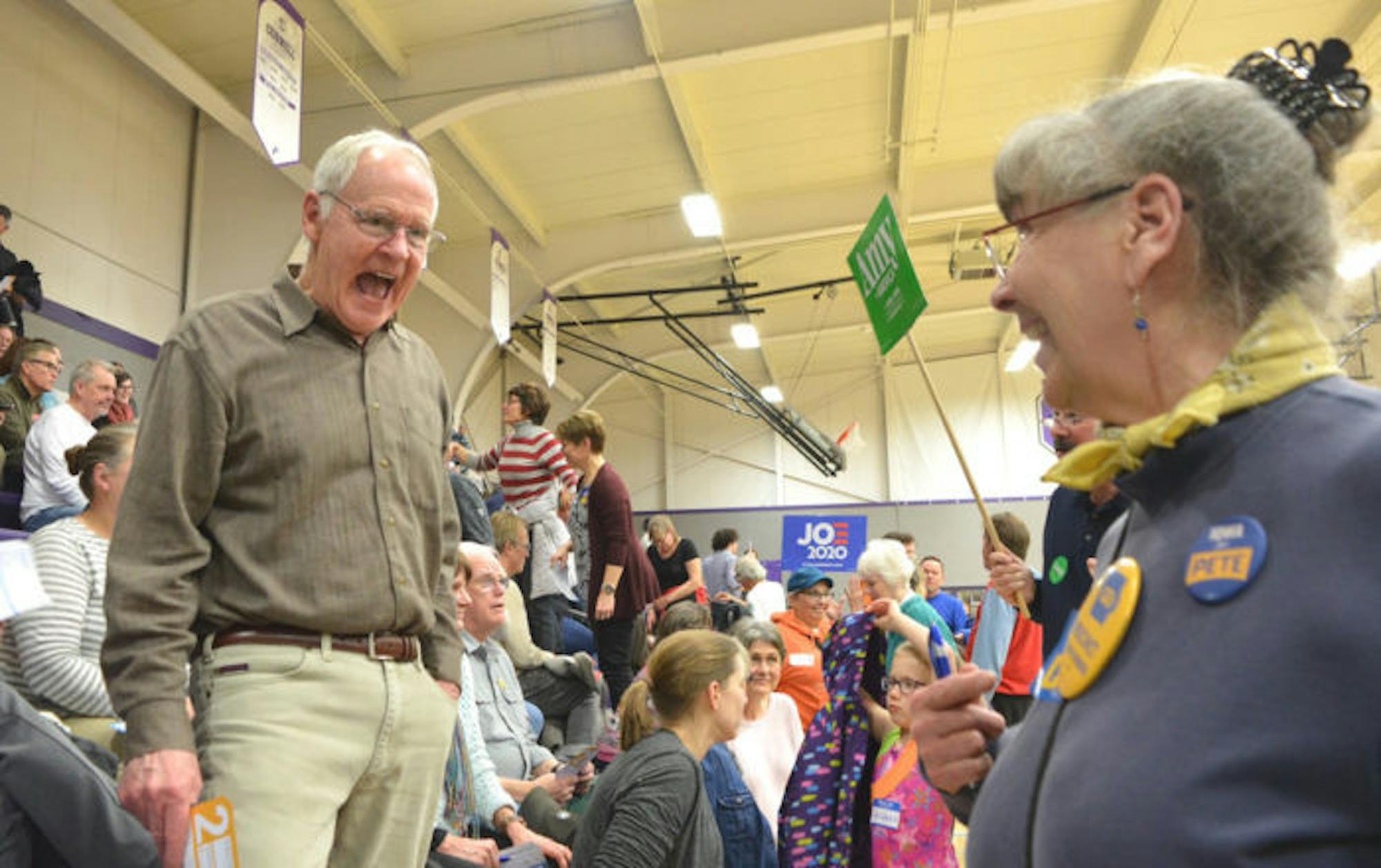Every four years, the state of Iowa holds the first contest of the presidential nominating process. The 2020 Iowa Caucus took place Monday. Iowans travelled to schools, churches and public libraries to record their votes. 
The results of this year’s caucuses were delayed due to failures in the vote-counting system and the people eagerly awaited throughout Tuesday to hear the results. The inconsistencies in the reporting of voting raised questions as to whether or not Iowa equally represented all of America.
Professor William Svelmoe, the chair of the history department at the College, had a first-hand experience campaigning in Iowa. Svelmoe travelled to Iowa this past weekend in order to campaign for former South Bend mayor Pete Buttigieg.
“I wanted to go and just experience Iowa. Everyone always says it’s the heart of the political universe,” he said.
The excitement that citizens expressed towards going door-to-door to campaign for their candidate was a one of a kind experience for him, he said. Nevertheless, while on this journey, he discovered that not everyone in Iowa was aware of the contest: most of the blue-collar workers he encountered were unaware that the caucus was approaching; they were unable to take time off from work in order to participate.
“I was reminded, which I think is important, is just how much participation in our democracy is a class-based … privilege,” he said.
Some have expressed a desire to see the inaugural contest moved elsewhere in future campaign cycles. Junior Kathleen Williams, however, has no problem with the caucus taking place in Iowa.
“The working-class middle class takes up the majority of the voting bloc, so it’s a good predictor when they have more of a say in voting, because they will [vote],” she said.
Sophomore Isabella Thompson-Davoli said the caucus should be moved, as to increase its visibility to a non-Iowan audience.
“Sure, move it. Maybe if they moved it to a different state people would know more about it,” she said.
Freshman Delaney Garabed also agreed that finding a different, more representative state would be more beneficial.
“I think [they should go] to a place, [that’s] not just racially diverse, but socioeconomically diverse, like class diversity and in a place where there is just more general representation across all fronts, rather than just by race or by class,” she said.
For his part, Svelmoe said he believes the caucus represents more than just a chance to vote.
“It’s so important ... because whoever wins Iowa … it launches you,” he said. “It certainly gives you a huge leg up and you’re doing it with virtually all white middle-class participation.”













